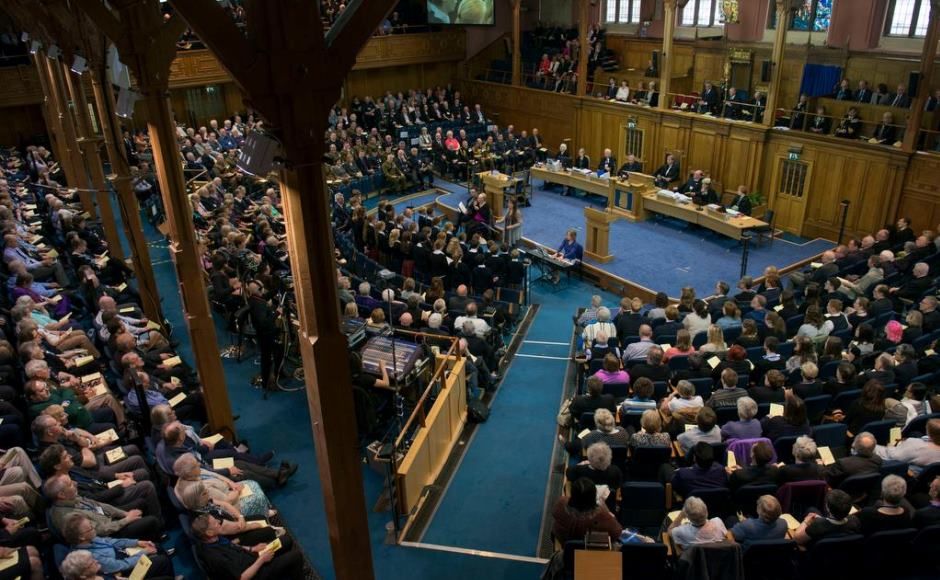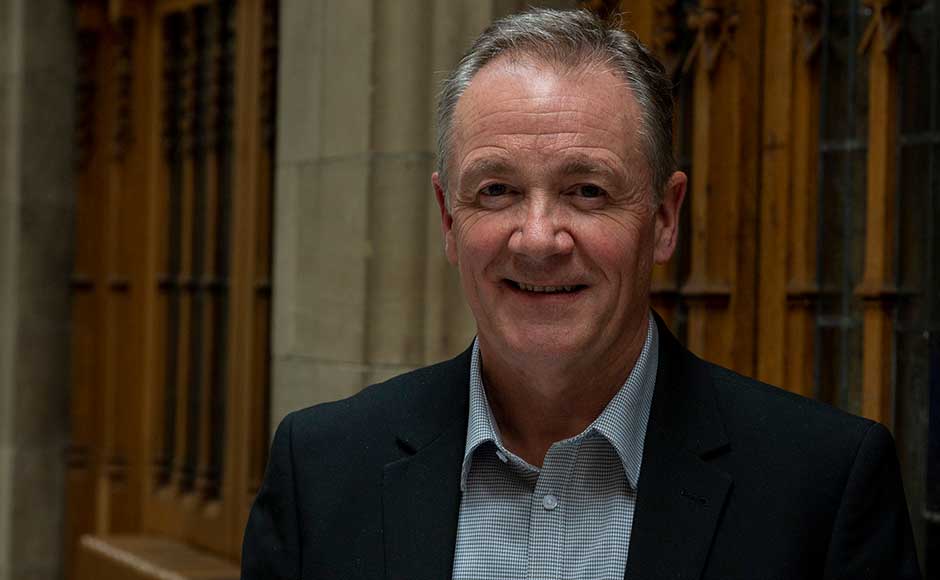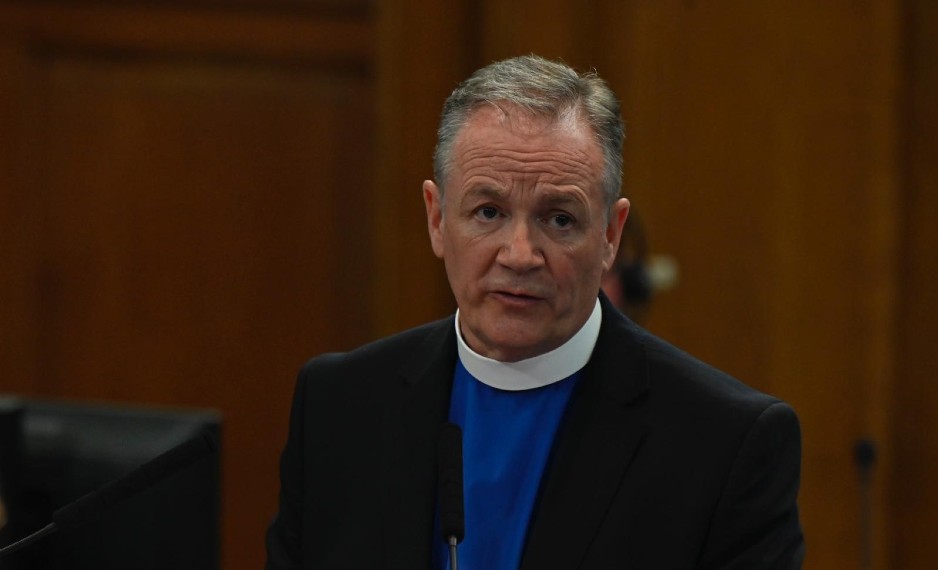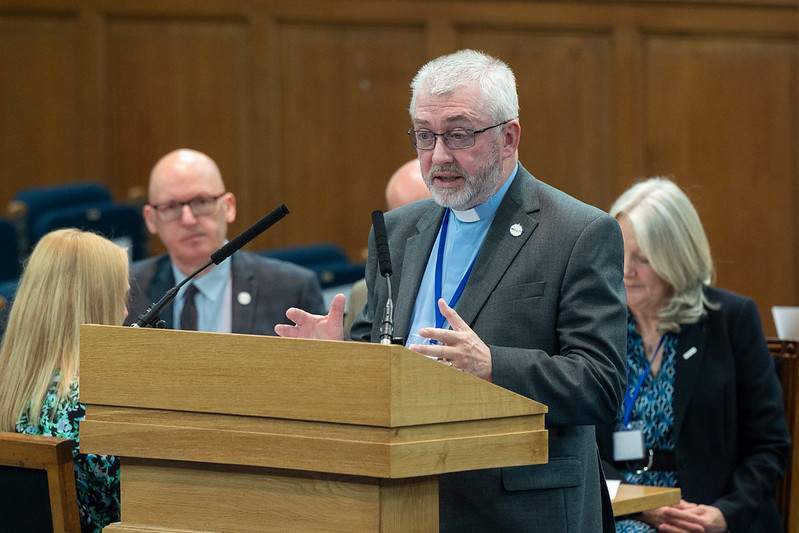Progress on reforms will top the agenda for 2023 General Assembly
Published on 27 April 2023
The Church of Scotland's 2023 General Assembly will meet in the Assembly Hall in Edinburgh from Saturday 20 May to Thursday 25 May.
The General Assembly makes Church law, reviews work that is underway and sets the Kirk's agenda for the coming year

More than 450 commissioners, made up of ministers, elders and deacons from across the Church of Scotland, will attend the Assembly, along with overseas and ecumenical delegates, youth representatives and guests.
The event will be streamed live and can be viewed on the Church of Scotland website.
The Rt Hon Lord Hodge, Deputy President of the Supreme Court of the United Kingdom, will represent King Charles III as Lord High Commissioner.
He is serving in the role for a second year.
The General Assembly's first act will be to install the 2023-24 Moderator, Rev Sally Foster-Fulton, who has taken a year's leave from her role as Head of Christian Aid Scotland to take up the role of ambassador for the Church.
This year's agenda will include discussions about widespread reforms initiated in 2019 to respond to the challenges facing the Church and to make a sustainable plan for delivering ministry and mission for the future.
Key reports
The Assembly Business Committee report looks at the progress of presbytery reform. The reforms, which began in 2021, will reduce the number of regional presbyteries from 46 in 2019 to 11.
Five of the new presbyteries have begun work over the last year and a Presbytery of the Highlands and Hebrides will launch on 1 January 2024.
The Assembly Trustees report will present a detailed overview of the state of the Church as it seeks to move away from outdated structures and create sustainable new ways of working.
Rev David Cameron, convener of the Assembly Trustees, said the General Assembly reports detail the breadth and depth of the reforms as well as explaining why they are essential and the way ahead.
"This is a critical time for the Church as we make the essential changes needed to lay a sustainable foundation for the future," he said.
"As Assembly Trustees we know how hard the last year has been for congregations, presbyteries and at a national level. We are grateful to the ministers, elders, church members and staff who have been pulling together faithfully to solve the serious challenges we face, and making some very difficult decisions for the greater good.
"A growing, flourishing Church is within our reach, but we must let go of the old structures that no longer serve us and embrace a new and different future. God's love is enduring and so must be our worship, our witness and our mission of sharing the Good News of Jesus Christ.
"I encourage everyone across the Church to read the General Assembly reports and consider prayerfully how they can play their part."
The Assembly Trustees' report outlines the long-term trends that make the reforms necessary. Fewer people are entering ministry, leading to a higher number of vacant charges, and membership numbers are reducing. These changes have led to a significant shortfall in Church resources and income at a level which is not sustainable to maintain the existing infrastructure.
The report looks at significant work underway to address these challenges and offers a road map for the future based on setting clear priorities, supporting presbyteries and local congregations, and recruiting and training people for leadership and ministry.
The Trustees acknowledge that the mission planning work that started in 2021 with the aim of reorganising parishes at the local level, has been a "challenging and painful experience." However, it is necessary because "we simply do not have enough people to support the structures which were serviced by previous generations."
To support local mission and growth, the Assembly Trustees are launching a £25 million investment programme over the next seven years. The Seeds for Growth fund will be open to applications from presbyteries from 1 June.

The Faith Nurture Forum report reviews the extensive work on mission planning that has taken place over the past year. Mission planning aims to help local congregations better serve their communities, through coming together to share ministers and finite resources. The report says:
"Presbytery Mission Planning has been an exercise unlike any other in the living memory of the Kirk. It has touched every Parish within Scotland and beyond. Mission is now embedded at the heart of the Church's thinking and acting."
In 2019, the Faith Nurture Forum was tasked with the development of 100 new worshipping communities and the Pioneer Grant fund awarded grants totalling £100,000 to support these ventures. Congregations now report supporting around 400 new worshipping communities, including Messy Church, Café Church and online worship. The Pioneer Scotland network has grown to 300 members and last year the online ministry Sanctuary First was incorporated into the national Church.
Despite the serious challenges facing the Church and the focus on structural reform, the Faith Impact Forum has continued work on public issues over the past year. Significant contributions have included efforts to amplify the voices of people in poverty as they face a drastic rise in the cost of living; to welcome and advocate for refugees and people seeking asylum; to support peacebuilding in South Sudan, the Middle East and the Korean peninsula; and to support partners working with displaced people in Ukraine and the Mediterranean. Churches have contributed to relief efforts for people affected by natural disasters in Syria and Malawi and worked to prepare the Church to work towards becoming a Net Zero organisation.
Faith Impact staff have also produced a Jewish Christian glossary to help build a shared understanding of the different meanings attached to words that are used by both faith groups.
The General Assembly will be asked to confirm the Church's view on matters affecting public policy, including taking an impartial stance on Scottish Independence, opposing proposed legislation on Assisted Dying and supporting a ban on conversion therapy for lesbian, gay and transgender people.
The Faith Impact Forum will also report on Scotland's legacies of slavery, looking at the ways the Church benefited from the profits of slavery and recommending how it can acknowledge and apologise for the wrongs of the past.
Related research undertaken with local congregations on the experience of minority ethnic groups within the Church has made recommendations on welcoming people from diverse backgrounds within congregations.
The Ecumenical Relations report will ask the Assembly to welcome the signing of the St Margaret Declaration with the Catholic Church on 16 November 2022 and direct the Church to continue work on the theology of friendship. The report includes the St Margaret Liturgy, which churches are encouraged to use.
It will also ask the Assembly to amend the Sacraments Act so that ministers from additional partner denominations can be "authorised to administer the Sacraments by the Presbytery of the bounds, in which matter the Presbytery shall be the sole judge."
The Social Care report will look at the work of CrossReach, which plays a fundamental role in delivering the Church's mission. CrossReach employs 1,800 staff and volunteers in over 70 locations across Scotland. CrossReach services support elderly and disabled people, children and families, and people facing mental health and addiction challenges. The report notes that CrossReach has recently opened a new addictions facility and is continuing to engage with the Scottish Government on the development of a national care service.
Other reports will review the work of military chaplains, the General Trustees' vital work on Church buildings, the Church of Scotland Guild, the Theological Forum, the Legal Questions committee, the Safeguarding committee, the Iona Community, the Investors Trust and the Pension Trustees.
Timelines and events
The reports will be uploaded to the Church of Scotland website's Reports and Additional Documents page in stages between 24 April and Friday 5 May. All reports will be available to be read in full by 5 May. The final Order of Proceedings will be available by 12 May.
As well as the formal discussions in the Assembly Hall, a fringe programme of events will offer opportunities to discuss proposed projects and initiatives in depth and to build networks of support. The Fringe programme can be found on the Church of Scotland website.
The Guild Big Sing event will take place at 7pm on Tuesday 23 May in the Assembly Hall.


